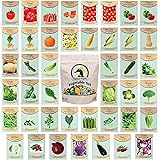IDEA FAMILY 4x2x1ft Oval Galvanized Raised Garden Bed Outdoor 9-in-1 Large Metal Modular Planter Box Raised Beds for Gardening,Vegetables,Fruits,Flowers & Herbs (Brown)
20% Offlalahoni Planter Box with Trellis,Raised Garden Bed for Climbing Plants with Drainage Hole,Outdoor Privacy Screen for Climbing Plants, Vegetable,Black,1PC
$59.99 (as of 14:51 GMT -05:00 - More infoProduct prices and availability are accurate as of the date/time indicated and are subject to change. Any price and availability information displayed on [relevant Amazon Site(s), as applicable] at the time of purchase will apply to the purchase of this product.)Composting is more than just a method of waste disposal; it’s an art form that transforms everyday scraps into nutrient-rich soil. For eco-warriors committed to reducing landfill waste and nurturing the planet, mastering composting can be one of the most gratifying endeavors. Let’s dive into the essential aspects of this sustainable practice!
## Understanding Composting: The Science Behind the Soil
At its core, composting harnesses nature’s own recycling system. Decomposers like bacteria, fungi, and earthworms break down organic matter through a process known as aerobic decomposition, converting food scraps and yard waste into dark, crumbly compost. This rich material teems with nutrients vital for plant health and promotes soil structure, moisture retention, and biodiversity in gardens. Understanding the science behind this transformation not only enhances your composting skills but also deepens your connection to the environment.
## Essential Materials: What to Compost and What to Avoid
Now that you grasp the science, let’s talk materials! Compost requires a balanced mix of “greens” (nitrogen-rich items) and “browns” (carbon-rich materials). Greens include fruit scraps, vegetable peels, coffee grounds, and grass clippings. Browns comprise dry leaves, cardboard, shredded paper, and wood chips. Aim for a ratio of about 2:1 browns to greens for optimal results.
However, not everything belongs in your compost bin. Avoid meats, dairy products, oils, pet wastes or diseased plants as they can attract pests or create unpleasant odors. Stick to natural ingredients for a healthy compost pile that supports both your garden and local wildlife.
## The Right Techniques: Turning Waste Into Gold
Creating quality compost doesn’t happen overnight; it requires attention! Start by layering your greens and browns in alternating layers within your bin or pile. Turn your heap regularly—ideally every few weeks—to aerate the materials and speed up decomposition. Keeping an eye on moisture levels is crucial; aim for a damp sponge-like consistency without sogginess.
Consider using techniques such as hot composting—which generates higher temperatures to kill pathogens—or vermicomposting with red wigglers if space is limited. Each approach has its unique benefits tailored for various lifestyles!
## Common Composting Mistakes and How to Fix Them
Even seasoned composters make mistakes occasionally! One common pitfall is creating too wet or too dry piles; if it’s too wet—add more browns—and if dry—spritz some water until it reaches that perfect balance.
Another frequent error arises from neglecting to turn the pile regularly; lack of aeration stifles decomposition efforts. Make it part of your routine! Lastly, be patient—the process takes time but trust that good things come to those who wait.
## Beyond the Bin: Creative Ways to Use Your Compost
Once you’ve mastered composting basics and have produced that coveted black gold—what comes next? There are countless ways to utilize your homemade compost! Spread it generously across garden beds or mix it into potting soil for container plants for enhanced growth.
Consider using it as mulch around trees or shrubs—a protective layer that suppresses weeds while retaining moisture during hot summer months! You can even create nutrient-dense liquid fertilizers through “compost tea,” which nourishes plants directly when watered onto foliage.
In conclusion, embracing the art of composting paves the way toward eco-conscious living while enriching our soils sustainably. With these tips under your belt—from understanding its science to creative applications—you’ll undoubtedly become a champion of ecological responsibility! Happy composting!

Related Content
- Superior leaders take fact-finding tour of WLSSD composting facility – Yahoo News
- Spring Cleaning and Environmental Sustainability
- World’s First Compostable Corrosion Inhibiting Stretch Film (Patent Pending) Now Available from …
- Composting key to sustanability
- From Seed to Harvest: The Complete Vegetable Gardening Timeline















































